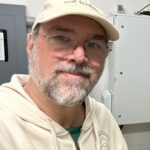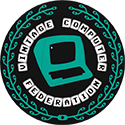
I’ve been a systems engineer for most of my career, starting with programming in the 80s and moving through what we used to call ‘system administration’. I’ve had many roles and worn many hats, from being a simple programmer grunt on a government IBM mainframe to leading an entire team re-architecting a legacy application to modern PC standards. Through it all, the joy in tinkering, learning, and exploring has never left me.
It’s this passion that has allowed me to fuel my love for vintage computing. With the seeds of this interest rooted in college with DEC minicomputers, my Dad’s S-100 Imsai, and my own TRS-80, and then through the golden era of the silicon revolution, I never lost the wonder at what these machines can do. But more than that, there’s so much subtle artistry, lore, and stories that go with it – it’s easy to lose track of what has gone before as the technology advances so far. The VCF’s role in preserving this history, this wonderment – it’s crucial to remember where all this comes from.
Now I take joy in sharing that wonder and knowledge with the next generation. I have been an exhibitor at the VCF many times, primarily showing my large collection of handheld computers. More recently I’ve been teaching myself video production, creating videos to let people experience vintage computing. In addition, I’m an active member in our local makerspace and am involved in several non profit organizations.
But through it all, some things remain constant :
A passion for technology, organization, communication, and planning.
It’s these qualities I’d like to bring to the VCF as a member of the Steering committee. Any organization, no matter how passionate the members are or how technically skilled they are, if they can’t communicate, plan, and execute visions, the organization can’t achieve the success it deserves.
